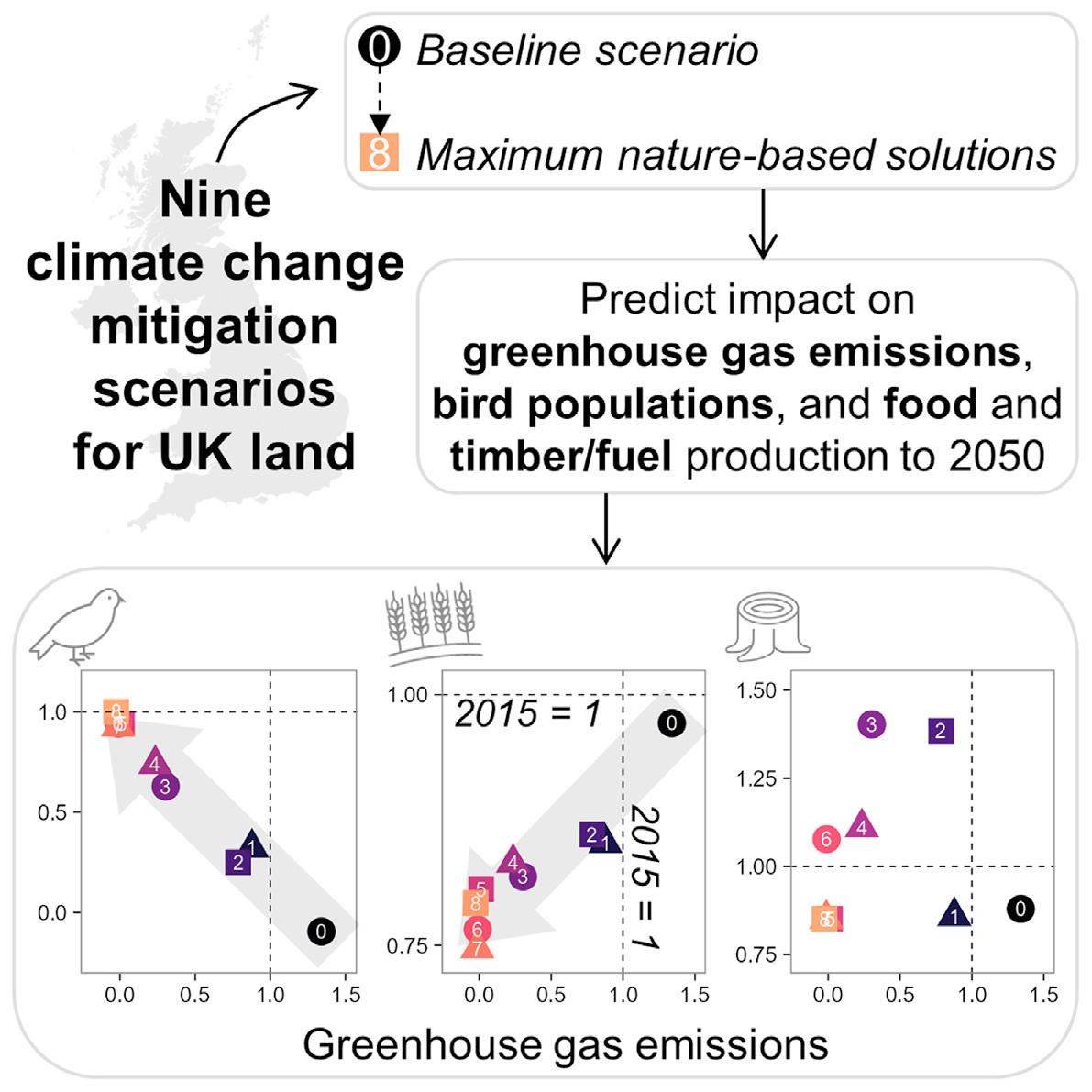October 20, 2023 | One Earth |
Introduction: The pressure on finite land to fulfill various human needs, such as food, timber, infrastructure, climate change mitigation, and wildlife habitat, necessitates a careful evaluation of the trade-offs associated with different land-use choices. Scientists from RSPB Centre for Conservation Science in UK modeled and evaluated nine land-use scenarios driven by climate change mitigation goals in UK.
Key findings: Currently, the UK's land sector, including agriculture, forestry, and peatlands, is a net emitter of GHGs. To turn this around, trade-offs are necessary. Through modeling nine future scenarios of UK land use, incorporating various measures to reduce emissions and enhance carbon drawdown, researchers find that achieving a net-zero UK land sector is feasible. However, it demands strategic land-use planning and changes in the food system. This underscores the importance of making thoughtful choices about how land is utilized, including agricultural practices and forestry, coupled with adjustments in the food supply chain, to successfully mitigate the impact of land-related emissions on climate change.

Fig. | Graphical abstract.





